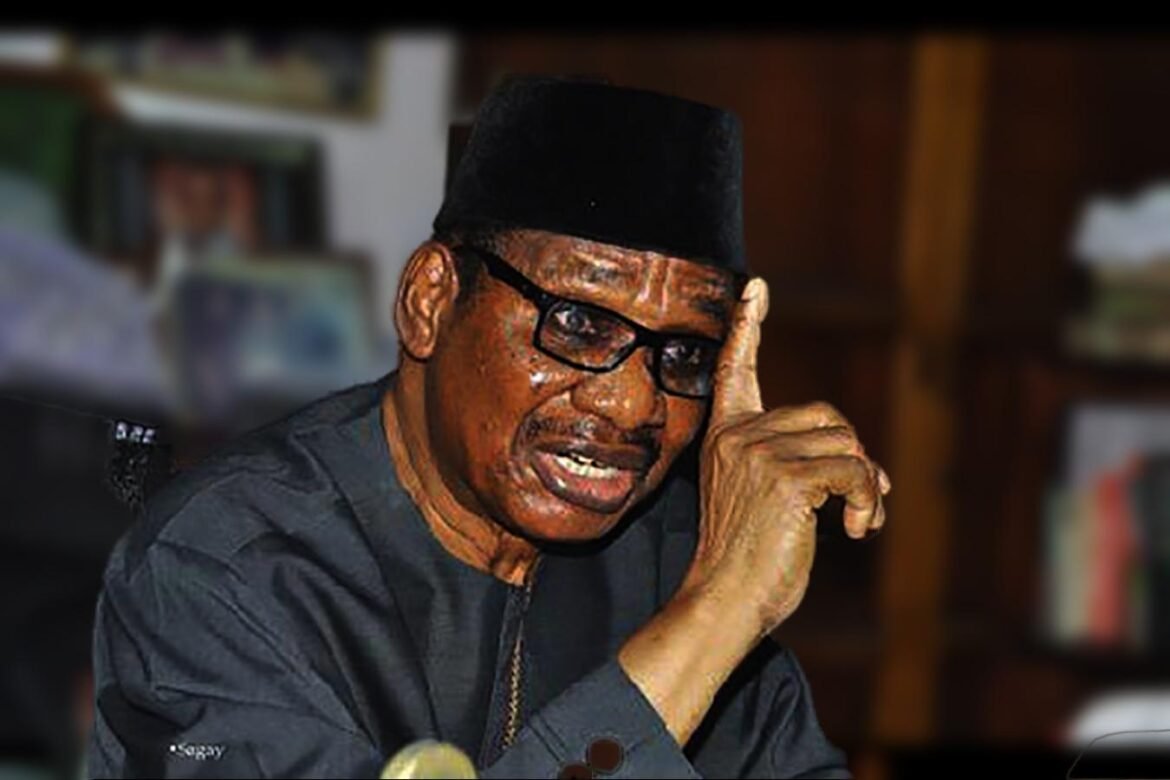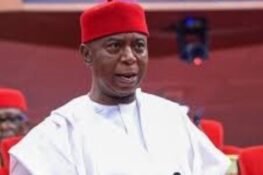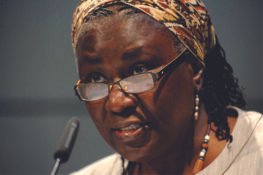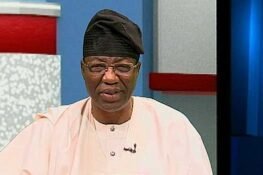In this interview, Chairman, Presidential Advisory Committee Against Corruption, Professor Itse Sagay, explains why the Chief Justice of Nigeria, Walter Onnoghen, should face the Code of Conduct Bureau.
The proposed persecution of the Chief Justice of Nigeria, Walter Onnoghen, over alleged failure to declare his assets has generated much controversy. What is wrong with the prosecution? What does the law say?
That’s a very good question. And honestly, I don’t know what the hullabaloo is about. The law is very clear about what public officers can do and cannot do under the Code of Conduct Bureau, including declaration of assets. And that is a subject that can be determined mathematically. It is either you declared, or you did not declare your assets; there is no exception.
The rule of law doesn’t know any exception. Nobody is above the law. It can happen to me, it can happen to you if you are in public office. It is compulsory that one must declare assets. So, what has to be determined by the Tribunal based on the evidence before it is whether he did declare or did not declare his assets. That’s mathematically certain.
So, what all the noise is about, I don’t know. I would have thought that those who have sympathy for the Chief Justice would have said there is nothing to worry about; the truth would come out at the Tribunal and it would be established that he has nothing to answer for.
And that would be the end of it. But there is a lot of confusion and cloud being thrown all over. There is a frenzy. I don’t understand why this is so. Are you saying that somebody who occupies high office cannot answer to a breach of the law? It doesn’t make sense to me.
It just shows you something wrong and those who are behind this are the elite – top elites, the Senior Advocates; all those who think that to live in a society is to gather privileges without any responsibility and if anyone of them is challenged about it, then the roof has to fall.
My view on this matter is; let the matter come before the Tribunal, let the prosecution make his case, and let the Chief Justice’s lawyers and himself show clearly that the case is wrong and that he is innocent. That’s it. It is very simple.
What are you talking about? I don’t understand you pressmen. So, if the person was a former associate or whatever of the President, so anything he says automatically is wrong, anything he says automatically is faulted. Why are we running way from the substance and dancing around the periphery, looking for totally irrelevant issues?
Some believe that for a sitting CJN to be prosecuted, the National Judicial Commission must do its investigation and recommend him or her for prosecution. Isn’t that the position of the law?
I’ve heard that, and I think some people are trying to ridicule this country. Alright the first point, the Court of Appeal gave a judgment which, in effect, amended our constitution illegally by giving semi-immunity to judges; that you cannot arrest or charge or prosecute them, unless clearance is given by the National Judicial Commission.
There is no such thing in our Constitution. The only people who are covered by immunity are the President, Vice President, governors and deputy governors. What that judgment did is to amend our constitution illegally. So, relying on that, though technically correct in the sense that a court has made a pronouncement, in justice and in substance it is an illegal judgment which should really not stand the test of time. That’s number one.
Two, my understanding of that very regrettable decision is that it is when you are charged with bad performance of your duties as a judge. If you are charged with wrong doing, with misconduct in relation to your work as a judge in the court with parties, it is then that the matter has to go to the NJC.
This matter has to do with something totally out of judicial activities. Something that is common to all public servants; that is declaration of assets. So, it doesn’t come within that particular compass that that long and illegal judgment created.
Either way, I don’t see that there is an argument on this issue. All he needs to do is to tender that these are the assets I declared, these are the ones I did not declare. It is so simple!
I would have thought that those who have sympathy for the Chief Justice would have said there is nothing to worry about; the truth would come out at the Tribunal and it would be established that he has nothing to answer for. And that would be the end of it. But there is a lot of confusion and cloud being thrown all over. There is a frenzy. I don’t understand why this is so.
There is a suspicion that the executive is trying to preempt a political outcome in this case. The petitioner is also a former aide to President Muhammadu Buhari. Do you agree with the view that there’s a political motive?
I don’t want to consider it. It is not just stupid, it is criminal. It is evil for anybody to now concentrate on who gave information and abandoned the information he gave. What are you talking about? I don’t understand you pressmen. So, if the person was a former associate or whatever of the President, so anything he says automatically is wrong, anything he says automatically is faulted.
Why are we running way from the substance and dancing around the periphery, looking for totally irrelevant issues? The issue is, did the Chief Justice of Nigeria declare all his assets or not? Period. It doesn’t matter how the information filtered to the Code of Conduct Bureau. I’m not going to consider that total irrelevance.
The Court of Appeal gave a judgment which, in effect, amended our constitution illegally by giving semi-immunity to judges; that you cannot arrest or charge or prosecute them, unless clearance is given by the National Judicial Commission. There is no such thing in our Constitution. The only people who are covered by immunity are the President, Vice President, governors and deputy governors. What that judgment did is to amend our constitution illegally.
The Attorney General of the Federation, Abubakar Malami, was reported to have said he is not aware of the prosecution of the CJN. Is it possible for such a case to proceed without his knowledge?
No. In a case like this, I expect the Attorney General to be the prosecutor. Or his office can give a fiat to a private lawyer to prosecute on his behalf. I don’t see a thing like happening without the involvement of the Attorney General, either in giving consent to a practicing lawyer, who is not in government, or he himself leading the prosecution. I don’t see that…that is not possible.








